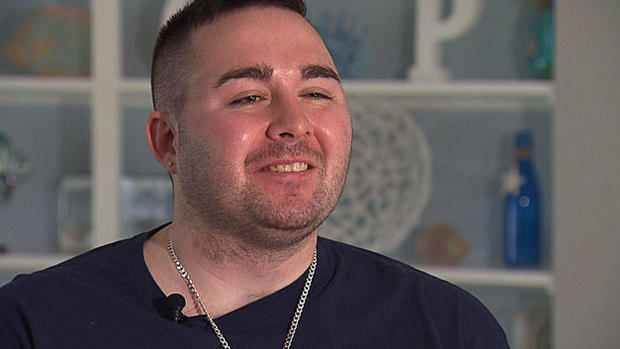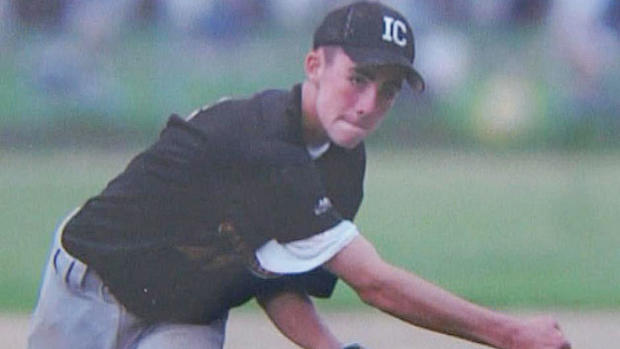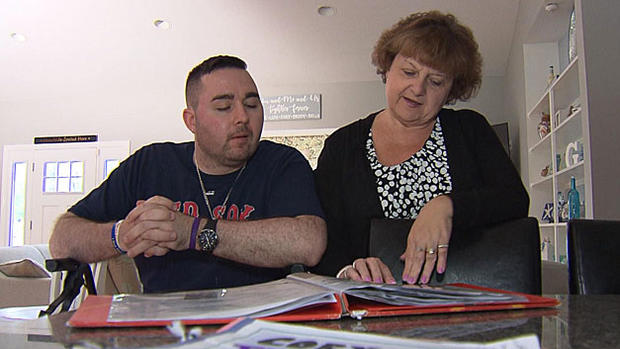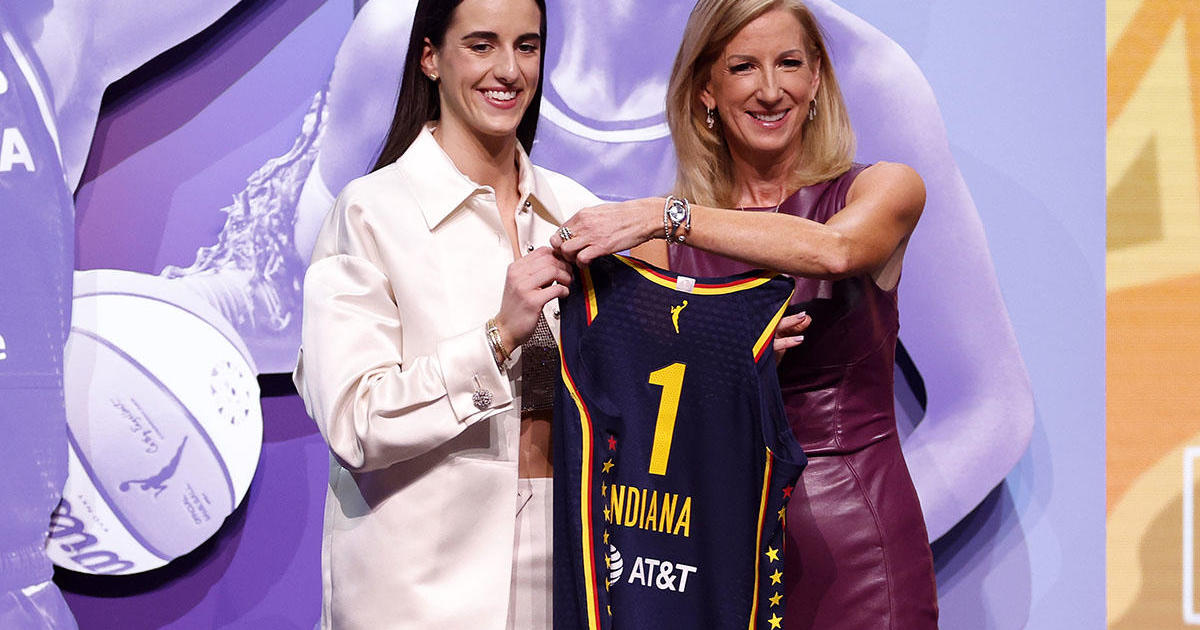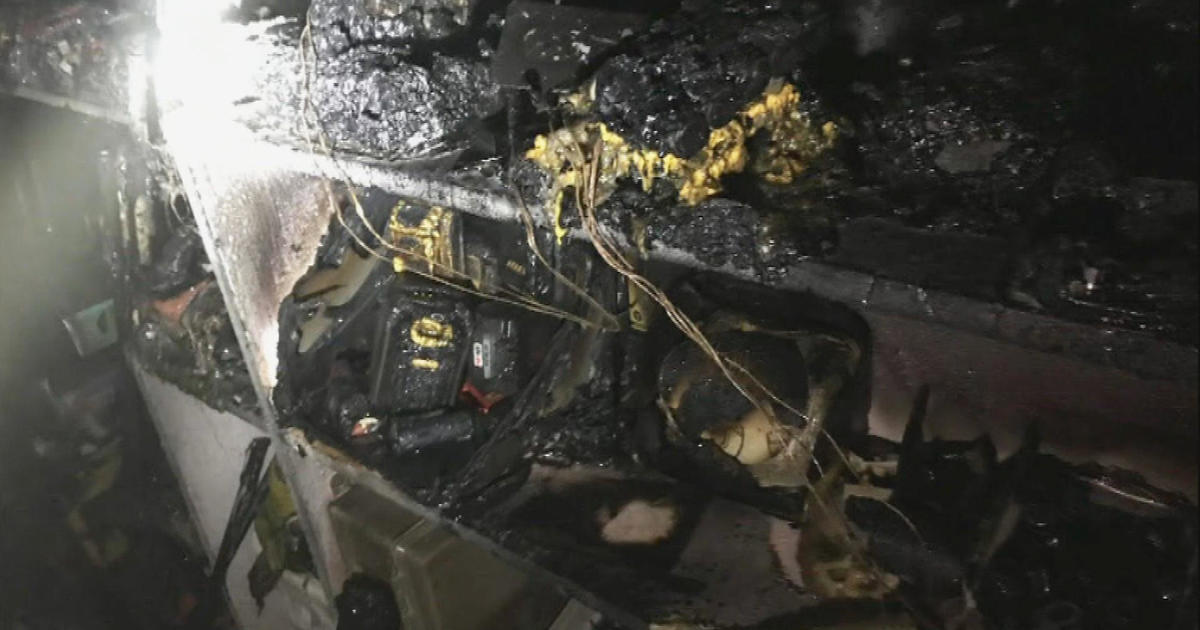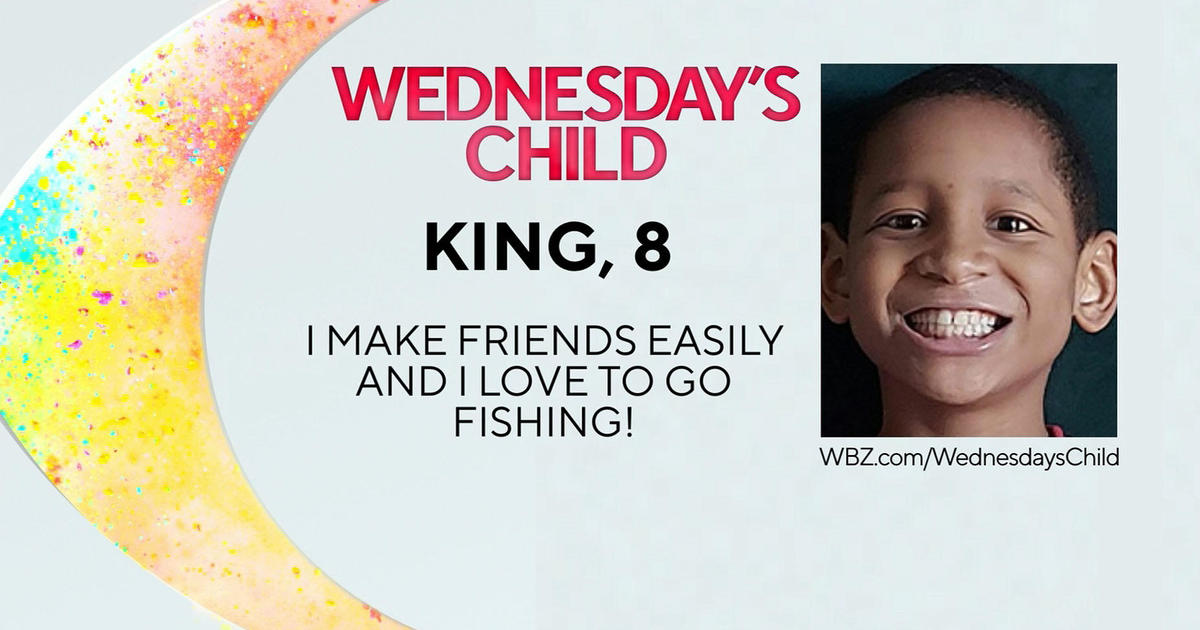Former Athlete Shares Survival Story Of Opioid Addiction From Sports Injuries
TAUNTON (CBS) -- There are many benefits to participating in high school sports, but there are also risks few people consider. Every year, thousands of injured athletes are prescribed opioids, and many will become addicted.
Related: Opioid Addiction Recovery Resources
It happened to Corey Palazzi, a baseball standout from Taunton. During high school, he could throw everything from a curve ball to a knuckle ball--and major league scouts were taking notice.
"I actually won the MVP of the whole league," Corey recalled, when he was the youngest player on his Babe Ruth team.
Things changed his junior year at Taunton High when a torn labrum muscle in his shoulder required surgery. Corey was prescribed Percocet for the pain. When his recovery didn't go as planned, he was crushed.
"I couldn't throw like I used to," Corey said.
That realization was tough to handle for a teenager who was at the top of his game.
"The Percocets not only made the physical pain go away, but made the emotional pain go away," he said.
Corey's mom, Lori Gonsalves, says she gave Corey the medication as prescribed, not knowing the risks.
"The addiction was instant for him," she said. "He tells me now that the first Percocet that he took, he loved it. He said his brain lit up like a Christmas tree."
The pills eventually lead to a heroin addiction, and in 2013, and overdose that nearly killed him. He survived, but suffered brain damage. He is now legally blind, and has limited mobility and speech difficulties.
Cognitively, Corey is fine, but Lori has to help him with simple tasks like getting dressed and tying his shoes.
"I wish the doctor had said to me, these drugs are addicting. No one said anything," she said.
But that's starting to change. A bill signed into law last year by Governor Charlie Baker limits the number of opioid pills a doctor can prescribe. It also requires high school athletic programs to inform student athletes about the risks of opioid use.
That is information even the Governor didn't have when his two sons played football.
"Both of them got hurt, but one of them actually got really hurt and took a ton of pain meds without anybody ever saying anything to us about the negative implications. The Baker family got enormously lucky there," the Governor said.
But as painful as the road has been, both Corey and his parents believe they too are lucky--lucky that Corey survived and lucky that they are able to share his story.
He started his own non-profit called Corey's Cause, and travels to high schools across the state to warn students about the dangers of opioids and other drugs.
"If I can help just one kid every time, then I feel like I've done my job," he said.
This is the sixth piece in a series of WBZ-TV reports on confronting the opioid crisis in Massachusetts.
